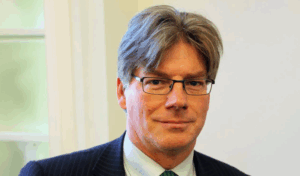
(Photo: Pexels)
As the UK Parliament prepares for a pivotal vote on the Leadbetter Assisted Suicide Bill, the Royal College of General Practitioners (RCGP) finds itself at the center of controversy. The college has recently shifted its position from opposing to taking a neutral stance on assisted suicide, drawing criticism amidst declining support from its members for legalizing the practice.
The parliamentary vote in April could potentially legalize assisted dying in the UK, yet a recent RCGP survey highlights a decrease in support among general practitioners. Over the last six years, the survey indicates a drop in the number of doctors in favor of legalizing assisted suicide, falling from 40% in 2019 to 33.7% in 2025.
Moreover, the survey shows that opposition to the practice has increased slightly, with 47.6% of respondents against it, compared to 47% previously. A significant portion, 50.2%, of those with a clear opinion prefer the RCGP to maintain its opposition to assisted suicide.
The survey data further reveals demographic variations within the RCGP membership. Female doctors exhibit stronger opposition, with 49.6% advocating against legalisation compared to 44.9% of their male counterparts. Additionally, non-fellow members show more resistance (49.8%) compared to trainees (45.3%) and fellows (38.5%).
Despite these findings, the RCGP governing council has opted for neutrality, a stance backed by only 13.6% of its members. Catherine Robinson from Right to Life UK commented on the situation, stating: “This large decrease in support for assisted suicide among GPs over recent years sends a clear signal to MPs who are hesitant about supporting the Leadbeater assisted suicide Bill, that they must vote it down at Third Reading.”
Assisted suicide advocates, however, have attempted to portray the survey results as indicative of growing support for the practice. Sarah Wootton, CEO of Dignity in Dying, described the RCGP’s shift as a “remarkable shift in how the medical profession approaches choice at the end of life.” Meanwhile, Kim Leadbeater, the bill’s proponent, affirmed that the decision aligns with her discussions with general practitioners.
Despite the governing council’s decision, the move has sparked backlash, with over 260 general practitioners signing an open letter expressing their disapproval. They argue that the new neutral stance misrepresents the sentiments of GPs and raises ethical concerns. The letter states, “We believe assisted dying undermines public understanding of and access to palliative care, puts vulnerable populations at risk of self-coercion or abuse, and drives societal biases that devalue certain lives.”
Additionally, Sarah Mullally, the Bishop of London, has expressed worries about the bill’s impact on vulnerable individuals, emphasizing, “The irreducible value of every human person means that no one is a burden, every life is precious, every life is worthy of care. No one should feel compelled to hasten their own death.”
In response to the RCGP’s decision, Ms. Robinson stated, “Assisted suicide campaigners are attempting to present the new survey as demonstrating a swing in support for assisted suicide from GPs. In reality, the only shift was towards greater opposition with a majority of those expressing a view favouring ongoing RCGP opposition, and opposition now outnumbering support and neutrality combined.”
The debate occurs alongside a significant motion from British Medical Association (BMA) consultants, warning of moral and ethical risks associated with the proposed Leadbeater Bill for UK doctors.
This article was originally written by www.christiantoday.com






